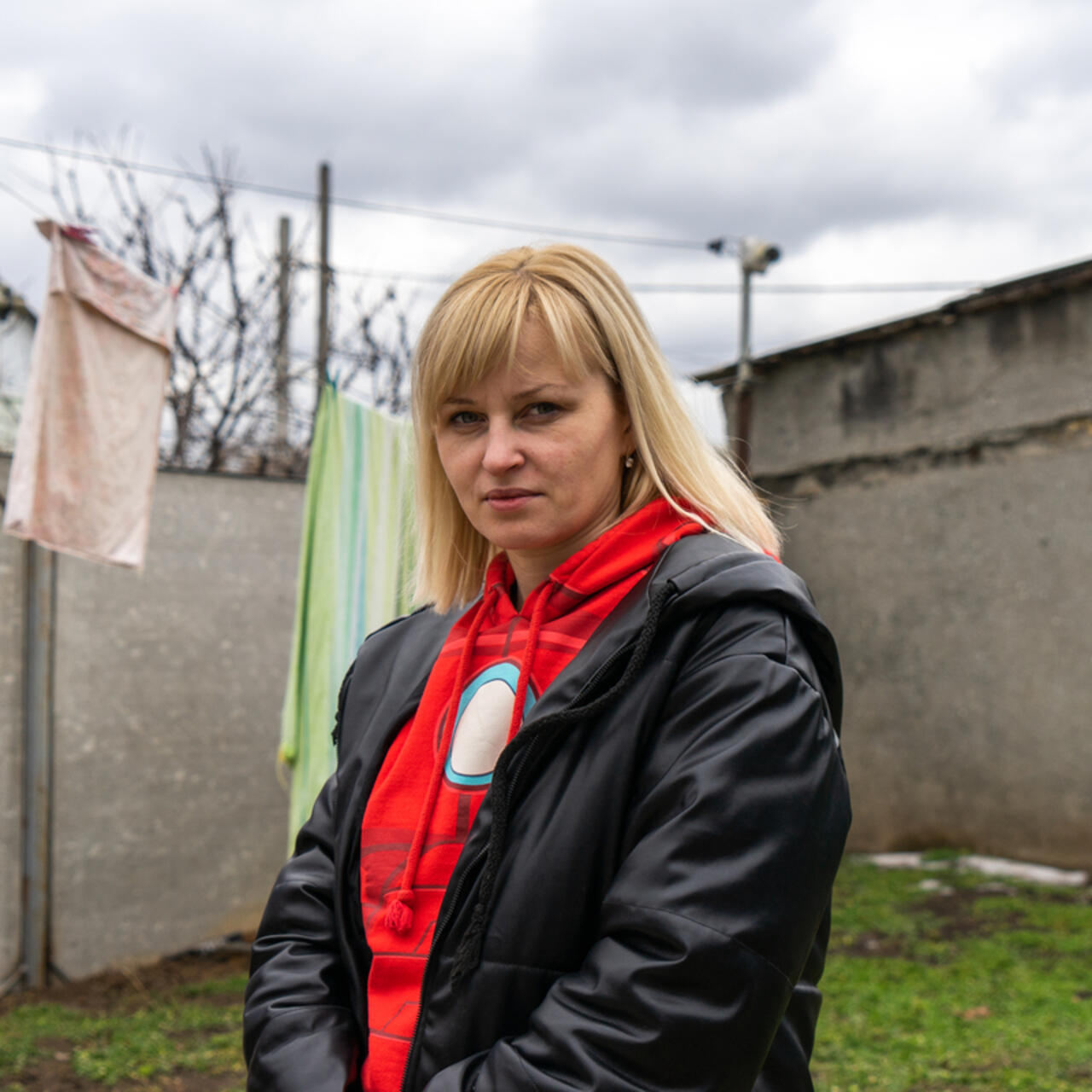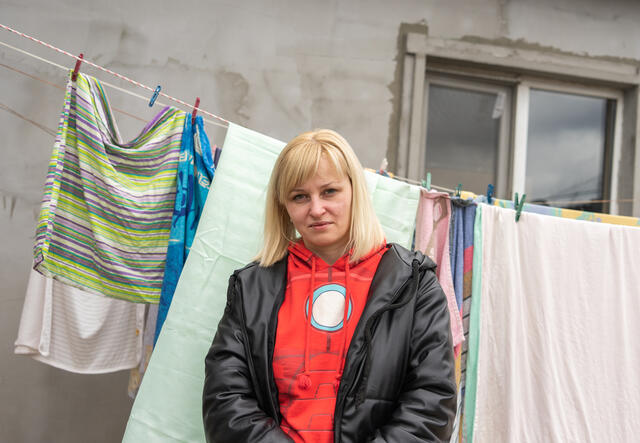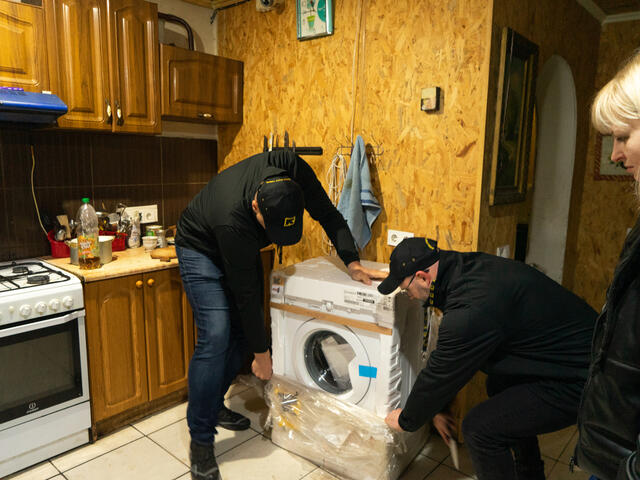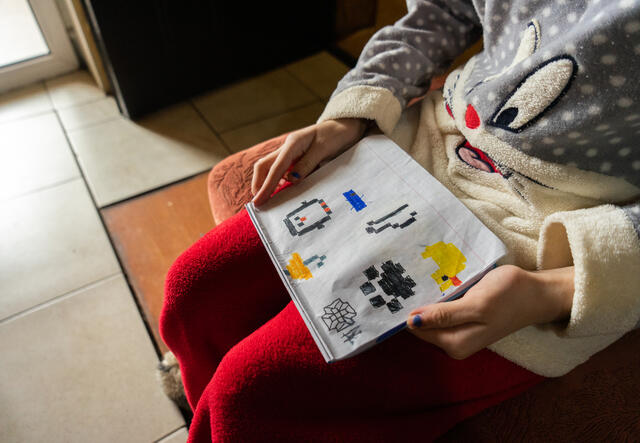
A Ukrainian mother strives for normalcy during a time of war
Determined to stay in Ukraine, Tetiana found shelter in an EU and IRC supported shelter with her daughters.

Determined to stay in Ukraine, Tetiana found shelter in an EU and IRC supported shelter with her daughters.
Tetiana and her two children, 13-year-old Katya who has special needs and 4-year-old Arisha, were living in the Kherson region of Ukraine when the conflict escalated into a war.
After spending a night in their basement due to constant shelling, Tetiana made the decision to evacuate her family. The next morning, she and a group of others from their neighborhood waited for a gap in the shelling before attempting to leave their city.
“It was scary, of course. We knew that in the morning there was time when they stopped shelling. We found out the time when the shelling stopped and together with other cars we left.”
Though millions of people had started fleeing Ukraine for neighboring countries, Tetiana had no desire to leave the home country she loves. She was glad to find a safe shelter in the Odesa region where she could stay with her daughters and also find work helping the owners of the shelter. The European Union (EU) and the International Rescue Committee (IRC) have partnered together to support this shelter and others in places where families have sought refuge from the war.
At the shelter, Tetiana helps clean the surfaces and the floors, monitors when the bed sheets need to be changed, and writes timetables for those who live there so they can contribute to keeping the shelter tidy.

She has found comfort and purpose being surrounded by other internally displaced people. “You know, if I was living somewhere alone, in an apartment, maybe I would get depressed,” she says. “But here is movement all the time, I have someone to talk to… And I don’t know how I would live without it really.”
One problem that proved challenging was when the shelter’s washing machine broke, causing a pile-up of the residents’ laundry. Though they received a used, back-up machine, it was hardly functional.
“We told people who had been living here and who then moved out that we needed a washing machine. And a guy brought a used one. It was rusty, it was hardly ‘breathing’. And we have to wash, to change bedclothes, towels all the time,” Tetiana explains.
“When we had electricity, I managed to have three washes, no more than that… So we had a line of people for even these three washes, but no more than that because I was too afraid it would get broken."
The IRC was able to equip the shelter with a new washing machine.

Tetiana is now one of 5.1 million people who are internally displaced in Ukraine. Like many Ukrainians, she longs for the war to end and for her daughters to get the normal life they deserve.
I really want everything to end, and for life to go back to normal. We live without planning tomorrow...
“I really want a normal school and kindergarten for the kids. Katya needs a specialized school because the online option isn’t convenient at all. They don’t study properly. There’s no electricity, no internet, I can’t even explain tasks to her properly…I really want everything to end, and for life to go back to normal. We live without planning tomorrow...currently our home village is under heavy shelling every day.”

The International Rescue Committee partners with the European Union to provide life-saving support to people caught in conflict and disasters around the world. Our work funded by the EU enables people to survive, recover and rebuild their lives.